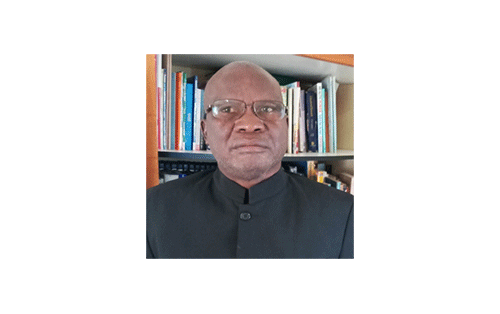The tendency to blame other people for our mistakes comes a long way. One may even affirm that this tendency is old as the creation itself. Biblical scholars and Christians alike derive this tendency from the moment when Adam shifted the blame for eating the forbidden fruit on the Creator and his wife, Eve.
Instead of admitting and shoulder the sinful deed Eve implicated the serpent as the culprit. From then the curse and culture of blaming others instead of admitting the guilt part people play in the circus of the blame game spread like wild fire.
Throughout the centuries and histories of kingdoms and nations, the blaming game has manifested itself in many forms and stages. In extreme situations the game reared its ugly face and led to conflicts which culminated into wars in which innocent souls were lost. For example during the Second World War, Hitler blamed and exterminated the Jews for all sorts of problems including the economic hurdles in Germany.
During the cold war, the Western countries blamed the former Soviet for espionage and vice versa and this created tension at the brink of a nuclear war. So the blaming game went on at that international level. When colonialism knocked at the African continent’s door, the blaming game was manifested and directed at the colonial master’s resolute stand of grabbing the locals’ land without compensation.
It was only right for the owners of the land to protest and blame the foreigners for grabbing their land by force. This scenario and the blaming game came to a halt when the nationalists stood up to the colonisers and took back their land by all means available to them. However, what is surprising is that after many years of nationhood, the curse and culture of blaming the colonisers refuses to die.
Yes, the colonisers looted African resources, but this should have been corrected immediately after getting independent. This is in line with what Professor Joseph Maitha, a former economics lecturer at the University of Nairobi, Kenya once said in 1979, “We can’t go on blaming the colonialists eternally for all our problems.”
Yes, they set up the system, but it is us who have been unable to change it.” It is really sad to hear many African leaders today throwing the entire blame of their ailing economies on the colonialist after many decades of independence. Almost at every platform, African leaders are chorusing the similar tune of colonial exploitation, but fail to find alternatives to their economic woes.
The late Zimbabwean leader went to the grave with his finger pointing at Britain and United States of America for having imposed sanctions on his country. Sanctioning Zimbabwe was not good, but other countries were free to trade with the country. Namibia is no exception in crucifying the colonialists for her economic woes.
After 32 years of independence, the country should have done better in attempts to improve the lives of the people. Yes there have been some strides made in this regard but in many areas the level of poverty is unbelievable despite the abundance of all these natural resources. Of course, we cannot blame the Fishrot scandal on colonialists.
Neither can we blame the colonial system for other monies which was siphoned through corrupt means. What about the education system in this country which is about to collapse because learners in many schools do not have enough textbooks! I recently observed students who were on teaching practice in the Zambezi region and could not believe what I saw in some classrooms.
Inadequate textbooks, lack of desks, dilapidated buildings and rugged floors with holes and in some cases less teaching. Surely, all these deficiencies cannot be blamed on colonialism but on our inefficient system which is failing to deliver as per the political campaigns.
Listening to our politicians talking about colonialism, one would think as if Namibia was the only country on earth which was colonised, but definitely not. Yes, we had some of the most brutal and ruthless colonisers like the Germans and the South African racist regime, but after their departure we should have picked up the pieces and move on. We did that but the tempo is very slow to try and pick up the economic recovery speed we need.
There are many examples of countries, which were colonised and worked wonders immediately after laying off the yoke of slavery and colonialism. France colonised Britain those years but that is history now, Japan colonised China, but look where China is today. Undoubtedly, China is the second economic and military power in the world today.
Rwanda had experienced double tragedies this century, colonialism and genocide, but with visionary leadership, the country has picked up economically with Kigali, the capital overtaking Windhoek in terms of cleanliness. For our leader to blame colonialism for the poverty in this country is understandable, but the four fingers point back at his administration for extravagancy and lack of accountability to the masses who voted them into power.
Other analysts have pointed to a bloated cabinet, an extended national assembly and many other duplicated bodies during his tenure of office as head of state. Whatever the case might be, the curse and culture of a blaming game in Namibia should be balanced and the leadership should accept and be accountable for their actions while in government.


